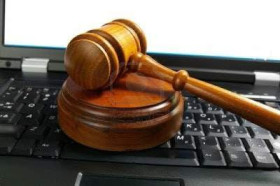Today’s CEOs and management must worry about more than profit margins, market analysis, and mergers and acquisitions; they must also understand and comply with new government privacy and information security regulations, risking civil and criminal liability for security failures (including the possibility of being held persona non grata), and risking civil and criminal liability for security failures (including the possibility of being held persona non grata).
How Cybercriminals Attack You
Cybercriminals can target you in two ways: the first is by tricking you into installing malware that allows them to access your system, and the second is by directly breaking into your accounts or computer. Fortunately, there are techniques to defend your computer from these types of threats.
Some techniques work against both sorts of attacks, while others are more specific. The most basic law of data security is that no single technology is capable of safeguarding all data. It’s critical to secure yourself with numerous layers so that the shortcomings of one technology are mitigated by the capabilities of the others. You can best protect yourself against any attacks cybercriminals throw your way by using a set of security tools.
How to stay protected from cybercriminals
Individuals and organisations must adjust their attitudes in order to avoid cyber attacks. There must be a fundamental understanding that everyone is a target when they are online, and that none of us are too tiny or inconsequential to be targeted. It’s also necessary to shift the way people think about incident detection and response.
We can only improve our defence skills by learning from our mistakes, as painful and costly as that may be. Some of the above-mentioned attacks were discovered and investigated, which is why we know about them.
Following are the secure way to stay protected:
- Check for security updates on a regular basis, and upgrade your system whenever your vendor provides them.
- Don’t click- Don’t click on any bothersome links or attachments sent to you by email or from a malicious website.
- Use public WiFi safely—because these networks don’t encrypt your connection, everybody who uses them to surf the internet is exposed. Before utilising public wifi, apply these programmes to safeguard it.
- Use a variety of passwords- Don’t use simple passwords; instead, use complex passwords. Don’t use the same complicated password on many websites. If one service is compromised, there’s a good possibility a cybercriminal will be able to use the same email and password to gain access to your other accounts.
Yes, you are concerned about Cyberlaw. As the Internet’s nature evolves and this new medium is viewed as the ultimate media ever evolved in human history, every action you take in Cyberspace can and will be viewed through a Cyberlegal lens.
There are various Cyberlaw issues involved at every point in time, from the time you register your Domain Name to the time you set up your website, to the time you promote your website, to the time you send and receive emails, to the time you conduct electronic commerce transactions on the said site.
You may not be concerned about these issues today because you believe they are far away from you and have no bearing on your online habits. However, sooner or later, you will be forced to tighten our belts and pay attention to Cyberlaw for your own good.






